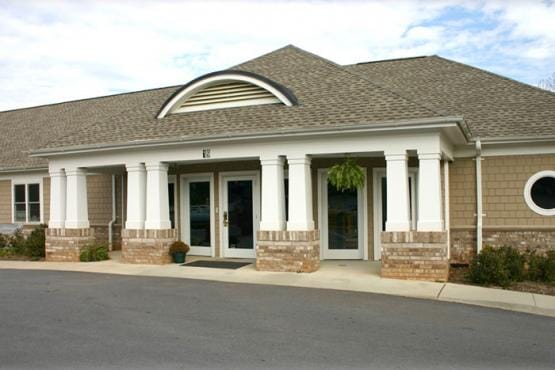Miracle Hill Renewal Program utilizes a Christian adaptation of the 12-Steps to facilitate the recovery of women from their life-dominating addictions. The program consists of four phases, which include spiritual foundations, inner healing, building healthy relationships, and life planning.
ABOUT MIRACLE HILL MINISTRIES — RENEWAL FOR WOMEN
Miracle Hill Ministries was established in 1937 as a soup kitchen and rescue mission. Presently, the organization operates four homeless shelters, multiple children’s homes, and two faith-based recovery centers in South Carolina. Renewal for Women, situated in Greenville, S.C., offers long-term, Christian residential treatment specifically for women struggling with substance abuse. Please note that medical detoxification is not available on-site, and the center states in its handbook that it is not suitable for women with “serious or chronic medical problems.”
TREATMENT & ASSESSMENT
The center’s six-month program is divided into four phases: spiritual foundations, inner healing, planning a healthy lifestyle and relationships, and prevention and planning. Clients engage in a Christian adaptation of the 12-step recovery model and participate in individual and group counseling, Bible study, chapel and church services, educational classes, and seminars. The schedule is rigorous and runs from 6 a.m. to 10 p.m. daily.
After completing the treatment program, clients have the option to enter Miracle Hill’s transitional housing program for six months. During this period, they attend weekly support meetings and maintain close contact with a mentor from the local church.
STAFF CREDENTIALS
The treatment is administered by on-site counselors, although it is unclear whether these staff members possess official certifications or credentials. Medical professionals are not available on-site, and medical and dental appointments are only made in emergency situations.
ACCOMMODATIONS & AMENITIES
Based on the images from the facility’s website, program participants reside and receive treatment in an unremarkable office building. The residents’ bedrooms are inspected daily, and completion of mandatory chores is required. During the initial 30 days of treatment, visitors and phone calls are not permitted, and there are strict regulations governing general behavior. Offenses result in demerits, which may lead to disqualification from the program. Smoking and tobacco use are strictly prohibited.
WHAT ALUMNI SAY
Best-rehabs.com has not yet received any reviews from former clients of this facility; however, secondary sources indicate predominantly positive feedback from previous clients. On Facebook (where Miracle Hill manages its own page), the organization as a whole (rather than the Renewal center specifically) has received a rating of 4.8 out of five stars based on 166 reviews.[1] One representative review by Brandi states, “Renewal was a true blessing, not only did the program set me free from my addiction, but it taught me the love of Christ. The teachers and volunteers at Renewal are true angels.”
On YellowPages.com, alongside reviews for the organization’s thrift store, there is one single-star rating for Renewal. Sylvia wrote, “This place for substance abuse is like being in prison for women… The rules are outrageous, and the staff are very mean!”[2]
WHAT FRIENDS & FAMILY SAY
The opinions of the two loved ones surveyed by Best-rehabs.com are divided. T.J.S. stated that they would recommend Renewal, awarding the center five out of five stars for counseling, mental health treatment, and the family program. T.J.S. wrote, “Tough love program and very strict rules. Dependent upon God and religion to see their errors” in their review.
However, B.L. adopted a more critical perspective of Renewal, noting that the center expels clients without sufficient justification. Furthermore, B.L. gave the program one-star ratings for treatment effectiveness, counseling options, and holistic treatment. B.L. wrote, “If you voice a question as to HOW the facility can help you once you are there, they will ask you to leave. They ask for honesty, but if you ARE honest, they do not want to help you.”
FINANCING
According to the center’s handbook, all clients must pay a one-time entry fee of $85. Subsequent fees are determined on a sliding scale. In cases where individuals have no source of income, they may complete the program free of charge. Those who possess some form of income, including unemployment or disability payments, are expected to pay a fee. No individual is rejected based on an inability to pay.
